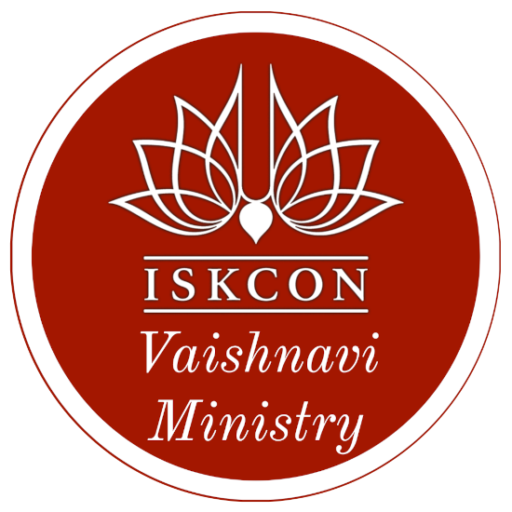Hare Krishna World Review article about the Second Annual Women’s Ministry
by Pranada dasi
Los Angeles, CA., USA – Anticipation was high as attendees and speakers from around the world gathered for the first annual ISKCON Women’s Ministry conference held December 5 to 7 in Los Angeles.
The conference attracted 116 ranging from as far away as France and London. A group of women in Los Angeles, including second generation devotee Shakuntala dasi and Krsna devata dasi, organized the event, which was held on a houseboat in Marina Del Rey.
Anuttama dasa, North American director of ISKCON Communications, summed up the enthusiasm: “This conference is the most significant event in ISKCON this year, if not this decade. The level of Krishna consciousness demonstrated here is remarkable. This conference was not what I thought it might be. The visions expressed were intelligent and unifying, not male-bashing, and left me feeling like the changes suggested were going to lend strength in further building the movement.”
Topics included Srila Prabhupada’s pastimes with his disciples, which demonstrated how he made no distinction between the sexes in services and activities; maturing social relationships and the importance of women’s involvement to stabilize ISKCON as a society; standards for women in ISKCON when Prabhupada was still present; investigation of Bhagavatam verses about women; a review of protection and of the notable qualities in Vedic and contemporary context; and women in Vaishnava history.
A candid look was taken at encouraging women’s involvement in all levels of ISKCON structure, and lively panel discussions evoked audience response. There was healthy balance of presented papers and spontaneous speaking; and presenters, such as Bir Krsna Goswami, Hridayananda dasa Goswami, Mukunda Goswami, Visakha dasi, Jyotirmayi dasi, Radha dasi, Garuda dasa, Titiksa dasi, Bimala dasi, Aniruddha dasa, and Malati dasi examined sensitive topics from many angles.
Throughout provocative and intellectually challenging presentation, the audience responded with applause and cheers. The reception of the discourses was so enthusiastic that many attendees said the conference had changed their lives. Bimala dasi said, “I realized that I was seeing our language change before my eyes. Both men and women at the conference realized the time has come – we’re each being called – to accept that we are the leaders. When we say “leader” we’re talking about ourselves. And you could hear from the presentations that we have solutions to our society’s problem. We need to restore what Srila Prabhupada has given us. The conference created a sense of belonging that I’ve never before experience as a devotee.”
A Harvard law graduate, Radha dasi, received a standing ovation for her examination of the international human rights law models and their application to ISKCON. Her parallels with international law and ISKCON ‘s approach to women’s positions in the movement elicited both laughter an appreciation.
Bimala dasi spoke briefly about single mothers, their need for respect and compassion, and the necessity for ISKCON to encourage men to take responsibility for their children.
Hirdayananda Maharaja had the audience laughing as he examined the phenomena of men becoming ungentlemanly after becoming devotees as if unkindness meant freedom from sex desire. “We have to realize now that ISKCON is bigger, it’s wiser, it’s more mature, and we have to cast off a lot of cultural patterns we adopted when we were young, immature, and ignorant – and that those things are simply suffocating the society.”
Jyotirmayi dasi, who joined the movement in 1969, systematically laid out the historical sequences of ISKCON law as it changed in the mid 70s to exclude women from temple functions, such as giving Bhagavatam classes, doing puja, and other devotional facilities available to men in the movement. She spoke eloquently of Srila Prabhupada’s vision of the man and woman’s preaching as “redoubled” strength. Her comprehensive paper detailed these changes, why they were made, and how to right them. Visakha dasi gave a scholarly explanation about protection, chastity, and humility, with little-known examples from the Mahabharata and Srimad–Bhagavatam. Her paper challenged many current belief systems in ISKCON.
Workshops generated suggested policies for GBC consideration. The audience emphatically demanded a minimal change of at least two or three voting seats on the GBC be given to women. Bir Krsna Swami, a supporter of the Women’s Ministry, assured the audience of his full support in addressing all these issues to the GBC. “Urgent changes need to be made in the consciousness of all the devotees. Impersonalism is a problem. We generally perceive other people as object that are meant to please us.”
At the Saturday night banquet attendees raised $10,000 to fund the Women’s Ministry activities this year, which will include an internally quarterly newsletter and preparing educational materials for women’s issues, such as domestic violence, solidifying a network in the United States and Europe, preparing GBC policy, writing a women’s position paper for ISKCON, and preparing for two other conference in the United States and Europe.
